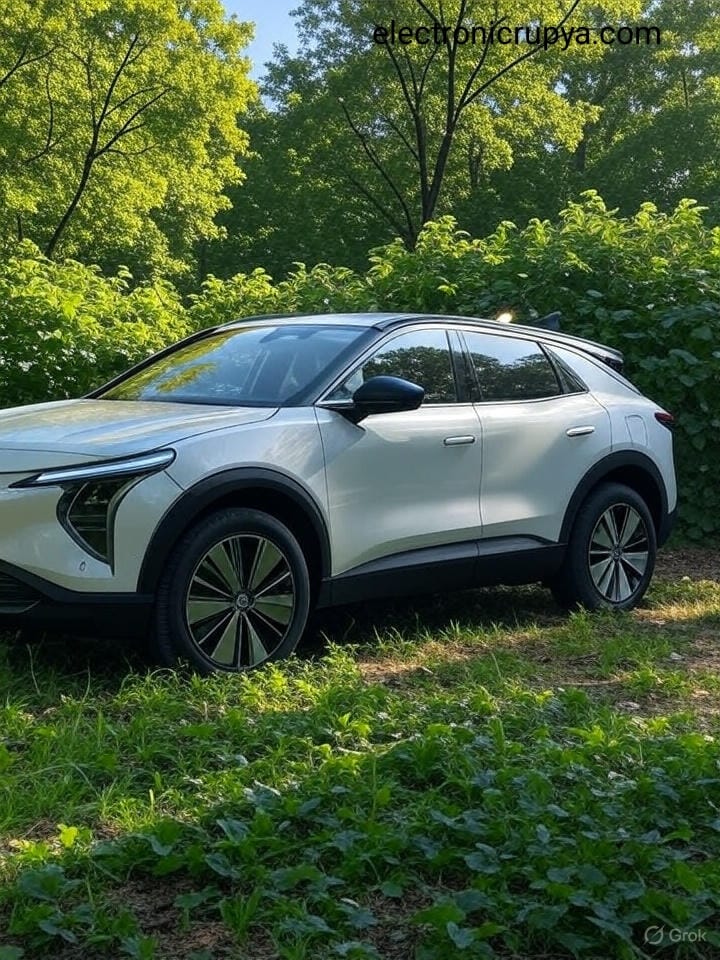Introduction
Electric vehicles, or EVs, are becoming more popular every year in India. With rising fuel prices and concerns about air pollution, many people are turning to electric cars as a greener
alternative to petrol and diesel vehicles. They seem like a great solution, especially because
they do not release smoke or gases while driving. But the big question is, are electric cars
actually eco friendly when we look at the full picture?
To answer this, we need to go beyond just the driving part. We have to consider how the
electricity that powers EVs is produced, how the batteries are made, and what happens to those
batteries after they are used. In this article, I will explore the real environmental impact of
electric cars in India in 2025.
Cleaner on the Roads
One of the biggest benefits of electric cars is that they do not produce tailpipe emissions. This
means no harmful gases like carbon dioxide or nitrogen oxides come out of the car while it is
moving. In cities like Delhi, Mumbai, and Bengaluru, where air pollution is a serious health
issue, EVs can help improve air quality. This is especially important because vehicles are one of
the main causes of pollution in urban areas.
Electric cars are also quieter than petrol or diesel vehicles, which helps reduce noise pollution.
So, from a local perspective, electric vehicles are clearly better for the environment and public
health when it comes to everyday driving.
The Power Behind the Car
However, the electricity that charges these cars has to come from somewhere. In India, a lot of our electricity still comes from coal powered plants, which release large amounts of pollution.
This means that if an EV is charged using electricity from coal, it is still connected to pollution
just not from the car itself, but from the power station.
The good news is that India is working to add more renewable energy sources like solar and
wind. In 2025, we are seeing steady progress, and the share of clean energy in the grid is
increasing.
As more of our electricity becomes green, electric cars will become more eco
friendly too. Right now, though, the environmental benefits of EVs depend a lot on the region
and the power source used to charge them.
Battery Production: An Environmental Concern

EV batteries are made from materials like lithium, cobalt, and nickel. Getting these materials
involves mining, which can be harmful to the environment.
Mining often leads to water pollution, deforestation, and damage to local ecosystems. Battery manufacturing also requires a lot of energy, which adds to the carbon footprint.
In fact, making an electric car can produce more carbon emissions than making a regular petrol car, mostly because of the battery.
However, this extra pollution is usually balanced out over time because EVs pollute less while driving. Still, it is important to understand that electric cars are not completely clean from the start.
Battery Waste and Recycling
Another challenge is what happens to the battery once it can no longer hold a charge. If not
handled properly, old EV batteries can cause serious environmental damage by leaking toxic chemicals into the soil and water.
Right now, India is still developing proper systems for
recycling electric vehicle batteries. Some companies are working on ways to reuse battery materials or give old batteries a second life by using them for energy storage. But large scale recycling is not yet common, and thiscould become a serious issue in the future if not managed carefully.
Charging Infrastructure and Affordability
India’s electric vehicle market is growing fast, especially in two and three wheeler segments.
Government schemes like FAME and PLI are helping by offering subsidies and encouraging
local production. Still, there are challenges.
Charging stations are not yet available everywhere, especially in small towns and rural areas.
Ma
ny people worry about how far they can drive before needing to charge something known as
range anxiety. Also, electric cars are still more expensive than petrol ones, even though running
costs are lower.
Do EVs Actually Help the Environment in India?
When we look at the full picture, electric cars are cleaner than petrol or diesel cars over their
lifetime but not perfect. A recent study showed that in India, electric vehicles can reduce carbon
emissions by about 30 to 40 percent compared to regular vehicles. That is a significant
improvement, but it also shows that we have room to do better.
The environmental benefits of EVs in India will keep growing as the electricity grid becomes
greener and recycling systems improve. Right now, electric cars are a step in the right direction,
especially in reducing city pollution and fuel use.
Conclusion
Electric vehicles have a lot of potential to make transportation cleaner and healthier in India.
They help reduce air pollution, save fuel, and support a move toward cleaner energy. But they
are not completely eco friendly yet. The electricity they use, the way their batteries are made,
and how those batteries are disposed of all affect the environment.
To truly make electric cars eco friendly, India needs to invest more in renewable energy, build
better charging networks, and create strong battery recycling systems. If we can do this, electric
vehicles can play a big role in building a cleaner and greener future. For now, they are not a
perfect solution but they are definitely a better one.






